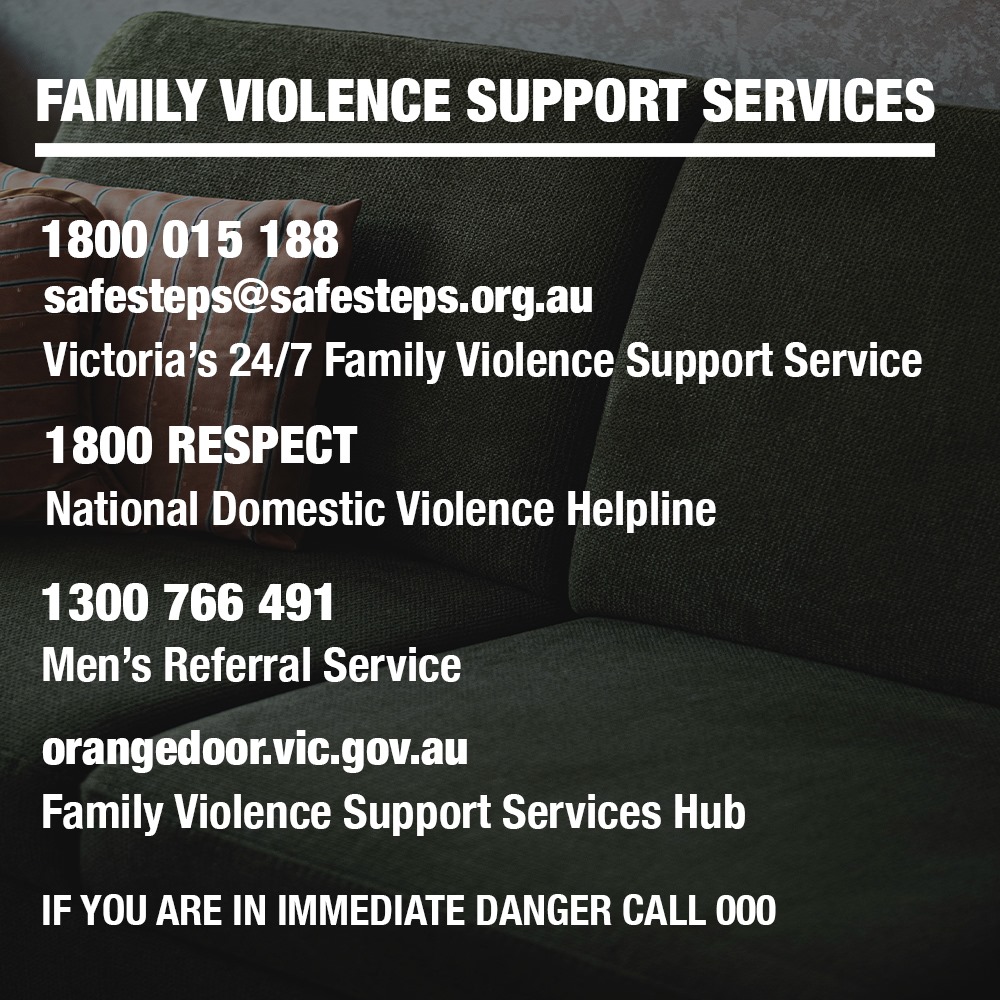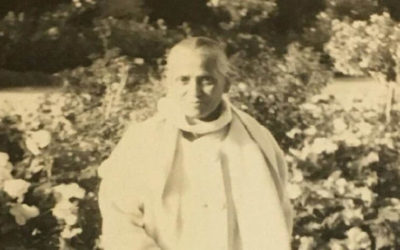There is no place for domestic violence – not now, not ever …

What does domestic violence mean?
In Australia, the words ‘violence, abuse and battering’ are often used interchangeably and usually means partner abuse—specifically abuse between a male and female partner.
Over the past decade, domestic abuse in Australia has been recognised as a major public health crisis, which affects people from all backgrounds—regardless of their social, racial, economic, educational and geographic backgrounds.
In Victoria it is called ‘family abuse’ as it encompasses more than partners within a family and household—abuse of children, elders and siblings.
Women experiencing domestic violence—in the form of physical, mental, sexual and financial abuse—is far higher than men. And, more often than not, women and children live in constant fear of the abuse used by men to control their partners.
Stats from Victoria Police
In Victoria, police responded to 85,923 incidents of family violence in the year ending March 2020, an increase of 4680 incidents (5.8 per cent) compared to the previous 12 months.
That means police are responding to 235 family violence incidents a day, or one incident every six minutes.
Victoria Police continues to respond to an increasing number of family violence incidents every year and it accounts for the majority of frontline police work.
Dr Manjula O’Connor, a psychiatrist with her a primary interest being in family violence and mental health says, “Although women may undergo domestic violence—often for years—from their husbands, husband’s families, other women, and also the community, the main reason for bearing up with it because of the fear of rejection and isolation.
“In many cases there is no support at home for domestic violence victims,” Dr O’Connor says. “Family members—including the mother—tells the girl to bear up and compromise in the face of violence. Friends don’t help because they’re scared that the victim’s husband will accuse them of breaking up the marriage. How does the woman get herself heard?”
What is being done to address this problem?
According to Victoria Police they continue to respond to family violence matters as a priority. They are encouraging others—extended family and friends—to speak up on behalf of someone else if they notice anything untoward because Victoria Police is here to support you. The videos on their website are in 26 languages—especially helpful for people who don’t speak English.
Dr O’Connor and her team have been using community theatre techniques and participation to promote change through increasing awareness and agency.
“This participation has yielded great results,” Dr O’Connor says. “Because in many cases social norms prevented the women who had experienced Domestic Violence from breaking the silence and seeking help.”
At the community theatres women highlighted their reasons for not speaking up—ostracism from the community and its potential to enforce silence and revictimise. Some women have also said that the Indian society does not take too kindly to a woman being too individualistic—a characteristic deemed to be a western facet. They are always encouraged to view themselves through the eyes of others, which has been a hindrance to suppressing gender-based suppression and violence.
Where to get help?
Unfortunately, most domestic violence cases remain unreported until something serious like a homicide occurs. Silencing leads to low service uptake and can result in mental health issues along with physical health problems.
Dr O’Connor says community theatre has helped domestic abuse victims “bringing the truth closer and opens up a space for communication.”
The Orange Door Network—now spread across the state—is a safe haven for Victorians who need support, can turn to and feel safe. It’s a safe place that can change and save lives.
Women who need help can also contact Dr O’Connor who is readily available or contact their GPs for a confidential chat.
Other helplines
https://www.police.vic.gov.au/family-violence-there-no-excuse
https://www.dss.gov.au/women/help-is-here-campaign
https://www.1800respect.org.au/
https://www.dvrcv.org.au/about/about-us
Recent Posts
- Mental health is as important as physical health
- World Health Day
- Autism Awareness Day – Autism Speaks
- World Health Day – Building a Fairer and Healthier World
- Sustainability – it is just about the environment?
- Living with ADHD – the lived experiences and the medical diagnosis
- Join us for an evening of Jashn
- Family Abuse Awareness





Recent Comments